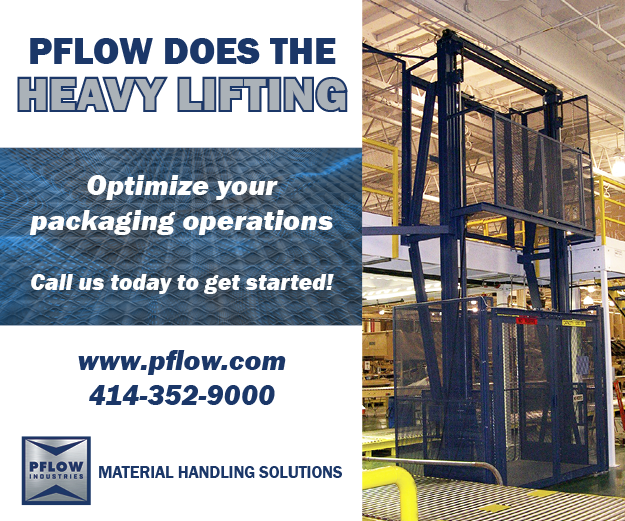A Packaging Perspective: Environmental Awareness with Aluminum
By Michael Mapes, CEO of Trivium Packaging
A growing number of consumers are making eco-friendly packaging, like aluminum, a major priority when making purchases.
Major organizations are paying attention to sustainability, too. This year alone we’ve seen the likes of San Francisco International Airport and Facebook HQ enforcing bans of single-use water bottles on their premises. Norwegian Cruise Line plans to eliminate single-use plastic bottles on its ships by 2020.
There’s no doubt that people are more conscious than ever of the environmental impact of the products they purchase.
With environmental awareness at its highest levels, Americans are even willing to pay more for products in environmentally friendly packaging. That’s according to a recent survey done by the Boston Consulting Group (BCG) in partnership with the Exal Corporation (now Trivium Packaging). BCG surveyed 5,000 individuals to find out exactly where they stand on the recyclability and sustainability of the products they buy. The gender, age, region and income distribution of participants surveyed for the study closely aligns with U.S. Census data.
Consumers today are bombarded with news on the negative impact of plastic on the environment. Images of marine life hurt by plastic waste and an “island” of trash floating in the Pacific Ocean have forced them to face the impact of their material choices. This is likely a consideration for the 37% of those surveyed that simply will not buy products in packaging that they view as harmful to the environment. It’s also likely why, when compared to aluminum, consumers are more than three and a half times more likely to associate plastic with “ocean pollution,” and two and a half times more likely to associate plastic with “waste.”
They’re not wrong. Aluminum beverage containers are 100 percent recyclable, and according to the U.S. EPA, 54 percent of them are recycled. By contrast, less than 15 percent of plastic containers are recycled. Of note here, too, is that recycling plastic downgrades its quality, so it typically becomes unusable after one to three cycles. Aluminum, on the other hand, can be infinitely recycled without any deterioration to its structure.
So, while emotion has become more of a factor in a consumer’s packaging selection, rationality is considered, too. Nearly half (44 percent) of respondents to Exal’s survey said that the sustainability of packaging is a major factor in their product selection decision and 62 percent agreed that it’s important that the products they buy are in environmentally friendly packaging.
It may come as a surprise that these behaviors are not limited to certain age or income ranges. Consumers across generations, from Baby Boomers to Millennials, are equally likely to see value in paying a higher price for green packaging. Separately, Gen Y, individuals between the ages of 26 and 35, are the most likely age group to seek information on recyclability and sustainability. However, it’s those aged 50 and older who are most likely to identify as environmentally aware.
Data shows that meeting the demands of the sustainable customer can pay off, too. For example, in 2018, Unilever announced that its most sustainable brands grew 46 percent faster than the rest of the business and delivered 70 percent of its turnover growth.
A recent study by Neilson, “How and Why Sustainability is Gaining Momentum with Customers,” also supports this notion. It examined the impact of sustainability on sales across three fast-moving product categories—chocolate, coffee and bath. Dollar sales of items that had sustainability claims had double the speed of growth compared to the weighted average of the three categories combined, with bath seeing the strongest gains. According to the report, “Brands that are able to strategically connect (sustainability) to actual behavior are in a good place to capitalize on increased consumer expectation and demand.”
But there’s still work to do in educating the customer. For example, despite the beliefs and behaviors around sustainability, a lower than expected percent of respondents correctly identified aluminum as recyclable. Retailers, brand owners and manufacturers are in a position to help bridge this knowledge gap and ensure that consumers have the sustainable options for products and packaging that they so clearly desire.
It’s pertinent that we address consumer demands for sustainability through use of recyclable packaging like aluminum beverage bottles and aerosol containers. Doing so can increase the perceived value of your products and help brands capture market share, as well as help to meet corporate sustainability objectives while striving to achieve a bigger goal: preserving this beautiful earth.
For a look at Exal’s full sustainability report, please visit http://www.exal.com/why-exal/sustain/.
About the Author:
Michael Mapes was recently named the CEO of Trivium Packaging, a merger between Exal and Ardagh’s Food & Specialty businesses. Trivium Packaging creates a $2.7B global leader in metal packaging with 57 production facilities across Europe and the Americas. Michael has been Exal’s CEO since January 2016.








